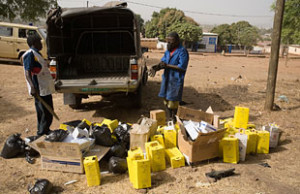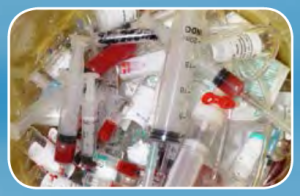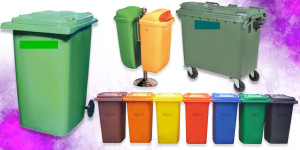Waste produced by health-care activities includes a wide range of materials, such as used needles and syringes, medical devices and radioactive materials, soiled dressings, body parts, blood, chemicals, diagnostic samples and pharmaceuticals.

Improper management of health-care waste potentially exposes patients, health-care workers, waste handlers, and the whole community at large, to infection, injuries, toxic effects, and risks of environmental pollution. It is vital that all medical waste materials be confined to their production points by putting them into hygienic refuse bins, properly handled and safely disposed of afterwards.


Tumore prostatico: la prognosi in base a stadio, grado e rischio
height=”261″ />
In the course of health-care activities, from radioactive isotopes to contaminated needles, has a higher potential to cause injury and infection than any other form of waste. And improper and/or inadequate medical refuse management has the likelihood to have devastating public health consequences and negative effects on the environment. That is why reputable and seasoned environmental consultants like Primefield worry!
Recently, the World Health organization (WHO) published a handbook that provides a comprehensive guideline on environmentally-sound, efficient and safe techniques for handling, disposal and management of health-care wastes in both normal and emergency situations. The said handbook, which is fully endorsed by Primefield, also discusses other related issues like the ever-changing disease patterns and climate change, and their impacts on the environment. Click here to download the Handbook on Safe Management of Health-care Wastes.
This WHO Handbook on Safe Management of Health-care Wastes recommends a special approach for medical settings where resources are severely-limited, by paying customized attention to basic technologies and processes that are not just safe, but also culturally-appropriate, sustainable and cost-effective. It targets hospital managers, policy makers, public health managers, environmental health professionals, environmental consultants, environmental activists and anyone who has interest and responsibility in waste management.
Our environment is becoming increasingly polluted, sadly by us – humans. Everyone of us, whether you’re an adult or just a little child, is playing a part in degrading our environment.

Ways The Environment Become Polluted:
- Carelessly throwing away waste (food, nylon bags, electronic devices) at the backyard, road, roadside, etc
- Unhygienic refuse collection
- Improper management of refuse collection
- Lack of result-oriented waste recycling
- Open and filthy gutters
- Unswept roads
Everyone can play a positive part in ensuring that environmental pollution is drastically reduced, if not totally eradicated. As environmental pollution has become a matter of grave concern, Primefield has dedicated itself since 1993 to providing a lasting Waste Management Solution. We believe that people should always use hygienic waste bins and waste management containers.

It is the duty of governments to provide street sweepers and recruit well-trained individuals to drive the vehicles (street sweepers), and sweep and clean up our streets everyday. Government owes the citizens an obligation to ensure that every gutter is closed, in order to curtail the spread of malaria and other related infections.






